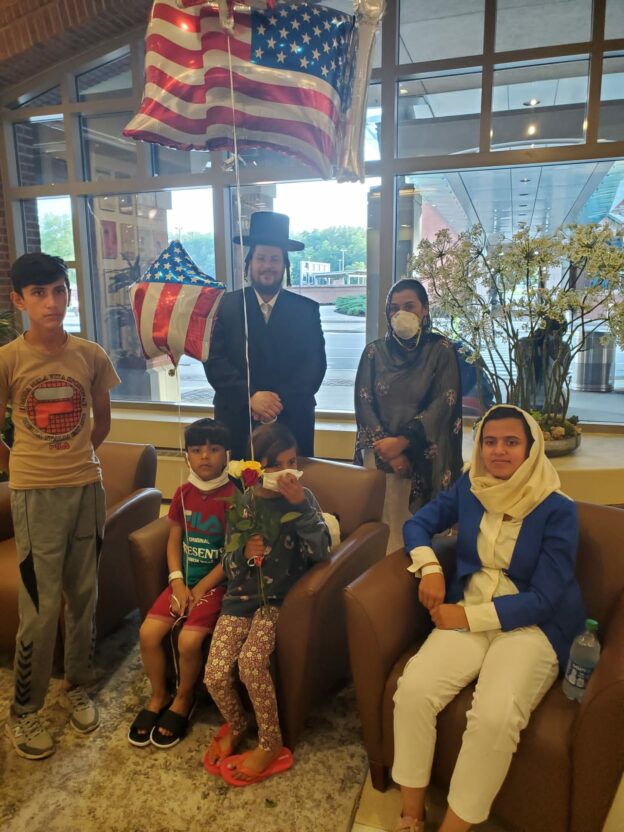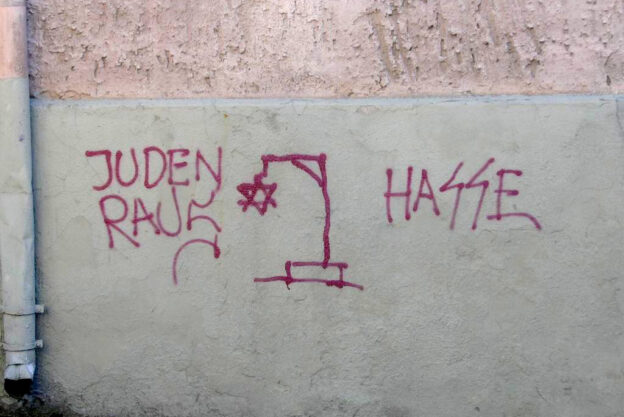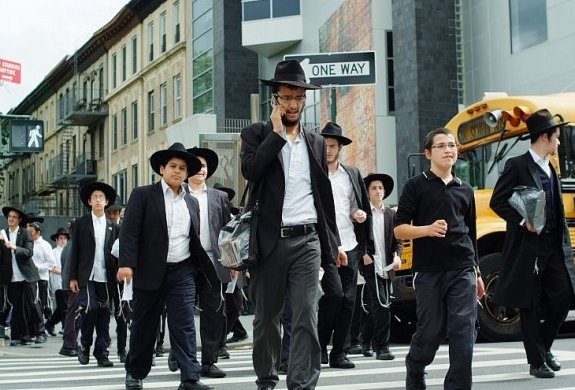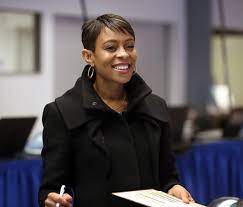An article I wrote for Religion News Service about haredi efforts to aid beleaguered people can be read here.


An article I wrote for Religion News Service about haredi efforts to aid beleaguered people can be read here.

Reflecting the time of year when we read Nitzavim, before the “Days of Awe,” the parshah’s major themes are sin and repentance.
And while much of Nitzavim concerns potential punishments for sin, there is also an undercurrent of assurance, of the possibility of teshuvah, repentance. “And you will return to Hashem, your G-d” (Devarim 30:2).
Even the parshah’s first words imply the power of teshuvah. Moshe addresses the Jews as nitzavim hayom, “standing upright today” (29:9), despite the fact that “much did you anger” Hashem over the years of wandering the desert, “yet He did not destroy you” (Rashi 29: 12).
Essential to teshuvah is charatah, regret of the sin. But charatah means just that, regret, wishing one had not sinned. It does not mean despondence, which can actually impede teshuvah.
Rabbi Yitzchok Hutner, the revered Rosh Yeshiva of Yeshiva Rabbi Chaim Berlin from 1940 into the 1970s, once wrote a letter to a student who had shared his anguish and depression over personal spiritual failures.
What makes life meaningful, the Rosh Yeshiva responded, is not basking in one’s “good inclination” but rather engaging, repeatedly, no matter the setbacks, in the battle against our inclination to sin.
“Seven times does the righteous one fall and get up,” (Mishlei, 24:16) wrote Shlomo Hamelech. That, wrote Rav Hutner, does not mean that “even after falling seven times, the righteous one manages to get up again.” What it really means, he explains, is that it is precisely through repeated falls that a person truly achieves righteousness. The struggles — including the failures — are inherent to the achievement of eventual, ultimate success.
One of the melachos of Shabbos is mocheik, or “erasing,” the sister-melachah of “writing.” And the melachos are derived from what was necessary during the construction of the mishkan.
Erasing, Rashi (Shabbos, 73a) explains, was necessary because mistakes would be made when marking the mishkan’s beams with letters indicating their placement. But only actions intrinsic to the construction of the mishkan are melachos. Apparently, mistakes were part of the process.
It’s much more than what Big Bird taught, that “everyone makes mistakes.” It’s that everyone needs to make mistakes.
Civil engineering professor Henry Petroski captured that truth in the title of one of his books: “To Engineer Is Human: The Role of Failure in Successful Design.” Initial failures, he asserts, are what drive tasks to perfection.
The same is true in life. Teshuvah is accomplished with regret, not despondency.
© 2021 Rabbi Avi Shafran

https://www.nydailynews.com/opinion/ny-oped-anti-semitism-on-the-loose-20210826-lyc2iv4etzanvcbgku3r3cu7ei-story.html
New York Daily News, Aug. 26, 2021
by: Avi Shafran
A very old, very wry, very pointed Jewish joke:
Goldberg is in the waiting area of a European airport holding the handle of his large suitcase and looking agitated. He approaches one traveler and asks him, “What do you think about Jews?” The fellow smiles benevolently and responds, “They are very fine people.” Goldberg thanks him and moves to another person, asking the same question. The response: “All humans are equal and worthy of respect.” Then to a third traveler; same question, similar answer. Then another, and another. Ditto.
Eventually, though, one of the accosted responds differently: Taking a deep breath and glowering at his questioner, he says, “They’re the scum of the earth, greedy plotters to overtake the world, killers of babies, causers of wars and cheats!”
“Ah!” says Goldberg happily, looking heavenward. “Finally! An honest man!” And then, turning to the spewer of the hate, he asks “Would you mind watching my suitcase while I use the restroom?”
There are indeed regions of the world where the populaces, ignorant and gullible, can be relied upon to swallow and regurgitate the most hateful canards about Jews, and who are all too ready to hate people they’ve never met as a result.
But surely not in the Western world.
A few items from recent days:
August 19. A school, a synagogue and a bus shelter were spray painted with antisemitic messages in Toronto.
August 20. The Los Angeles County District Attorney charged two former Torrance police officers with vandalism for allegedly spray-painting a swastika on the back seat of a car.
August 21. A man punched a 64-year-old Orthodox Jewish man as they passed one another on the street in the heavily-Jewish neighborhood of Stamford Hill. Earlier in the day, the same man punched a Jewish child in the neighborhood. In a separate incident on Aug. 12, a 72-year-old Jewish man was slapped and had his kippah knocked off his head in another suspected hate crime in London.
August 22. Robert Smart, an evangelical Christian who lives in Florida, was outed as a prolific QAnon antisemite. He has more than 300,000 followers on Telegram, where, as “GhostEzra,” he posts Nazi propaganda, Holocaust denial and “a slew of conspiracy theories that often range from obliquely to explicitly antisemitic,” according to Logically, an organization that tracks disinformation online and uncovered his identity.
August 23. An 18-year-old Jewish man wearing a kippah in Cologne, Germany, was beaten by a group of 10 attackers in a public green space and taken to the hospital with a broken nose and cheekbone.
August 23. A man violently slapped a Jewish man in the face, in front of the victim’s wife and five children, at the children’s pool area of an Aventura, Florida hotel’s resort water park. The assaulter’s wife, according to police, called the victim’s wife a “dirty Jew.”
When, as occasionally happens, I meet a fellow Jew who is convinced that if you scratch any non-Jew hard enough, you’ll find an anti-Semite lurking beneath, I vociferously disagree. I’ve experienced (in addition, to be sure, to my share of Jew-hatred, including both verbal and physical assaults) too many acts of non-Jews’ kindnesses, and known too many good people who don’t share my religion or ethnicity.
And so the joke about Goldberg, I know, is an exaggeration. But perusing the news on almost any given day, I know, too, that exaggerations aren’t fabrications. They may overstate a case to make a point. But the point is often, as it is here, an entirely valid one.
Goldberg may be a joke. But antisemitism isn’t.

My most recent Ami Magazine column, about the “Orthodoxification” of the American Jewish community, can be read here.

What is arguably the most shocking pasuk in the entire Torah is in this week’s parshah. No, it’s not any of the descriptions of horrors in the portion of the parshah we call the tochacha, although it does lie within that portion.
It is the pasuk that identifies why the horrors can happen: “Because you did not serve Hashem, your G-d, with happiness and joy of heart amid abundance” (Devarim 28:47).
Some commentaries parse that pasuk to mean, in effect, that “you did not serve Hashem, which you should have done with happiness amid abundance.”
But Rabbeinu Bachya (and the Rambam seems to regard the pasuk similarly) reads it very differently, as effectively saying: “You served Hashem, yes, you did His will, but without happiness, despite the abundance.”
In other words, the tochacha’s terrors are the result not of any lack of mitzvos, davening, acts of chesed or studying Torah, but rather of doing all those things, but doing them joylessly.
The importance of simchah is actually presaged in the parshah in its opening law, bikkurim. There, the bringing of first fruits is accompanied with a command to “rejoice in all the goodness that Hashem your G-d has given you” (Devarim 26:11).
How, though, can one be commanded to be happy?
The question is based on a falsehood, that happiness is something that happens to us, not something that we can choose.
To be sure, it is not always easy. The key to achieving joy lies in the words “amid abundance” and “all the goodness” in the pesukim above.
That is to say, in pondering – seriously, deeply and constantly – all that we have. The trees and the rain, the laughter of children, the beating of our hearts, the roofs over our heads.
In stopping, when we find ourselves grumbling over the supermarket being out of the particular brand of hot sauce we prefer and marveling instead at the wild bounty of foods filling the store’s scores of shelves, utterly unimaginable to someone living a mere century ago. In thinking, as we enjoy a luscious piece of dark chocolate, that 99% of humanity over millennia never even had the chance to experience that taste.
Knowing that heat in the winter is available to us with the push of a button. That we have air conditioning, computers, cars, indoor plumbing… There is no limit to the list.
Happiness doesn’t happen. It is achieved. And we are commanded, indeed privileged, to achieve it.
© 2021 Rabbi Avi Shafran

Should anyone still need convincing that “progressive” stances on Israel are at times tainted with… something less than enthusiasm for Jews… former Ohio state senator Nina Turner’s concession speech should do the trick.
The race that Ms. Turner lost on August 3 was in a special Democratic primary bid to fill an open House seat in Ohio’s 11th congressional district, which includes much of Cleveland.
The contrast between Ms. Turner and the come-from-behind winner, Shontel Brown, was stark.
And Israel was very much a point of contention between the two candidates.
To read my commentary on the election, which was my Ami column last week, click here.

It’s edifying to compare the larger world’s celebrations of its various New Years and the Jewish celebration of Rosh Hashanah.
The former is characterized by revelry, drunkenness and, hat tip to Auld Lang Syne, a smidgen of sentimentality. The latter, by trepidation and regret of the past year’s missteps.
Greater society’s preparation for their New Years Days consists of buying fireworks and alcohol. Ours is Elul, the month during which, as the Eastern European folk saying has it, even the fish in the rivers tremble.
The law of the yifas to’ar, the “beautiful woman” encountered among the enemy and fallen for by a Jewish soldier in war, is a strange one. The captive, after a month’s time during which she, shorn of her hair, is to cry over the loss of her father and mother, is permitted to be taken by the soldier as a wife.
Much has been written in explanation of the counterintuitive law. But the Zohar Chadash has a metaphorical comment.
Seizing on the word used in the law for “month” (“yerach”), the mystical text comments, “da he archa d’Elul” — “this is the month of Elul.”
The yifas to’ar is leaving her past behind, entering a new world. According to Rabbi Akiva in the Sifri, the “father and mother” over whom she cries refer to the idolatries of her past, as per the prophet’s rebuke: “They say to the wood, ‘You are my father,’ and to the stone, ‘You bore us’ ” (Yirmiyahu 2:27). Her tears are tears of regret, for having been in idolatry’s thrall. And, perhaps, tears of joy at entering a new world, as part of the Jewish nation.
During Elul, we mourn our pasts too, and express joy (V’gilu bir’ada — rejoice in trembling -Tehillim 2:11), as we enter a new world, a new year.
After the night’s drunken revelry, a New Year’s Eve celebrant may find himself experiencing delirium tremens, the infamous “DT’s”.
Jews who fully embraced Elul will wake up as BT’s.
© 2021 Rabbi Avi Shafran

Why, of course the elders of the nearest city didn’t kill the man! So what is the meaning — in the case of a person found murdered on the road, where the ritual of egla arufa is prescribed — of their requirement to say, “Our hands did not spill this blood”? (Devarim 21:7)
As the Mishneh (Sotah 45b) explains, what the elders must affirm is that they did not even send the visitor off without food or accompaniment as he left their city.
And so, by their declaration, they are guiltless even of that. So why is an “atonement” — which the egla arufa is called — necessary? For whom does it atone? The murderer? Certainly not. If he is subsequently discovered and convicted in court, he is executed (ibid 47b).
It seems clear that, as the pasuk itself states starkly, the atonement is for “Your people Yisrael” (Devarim 21:8). What could that mean? What did the Jewish people do to the victim?
There are interpersonal actions that Chazal equate in some way to more obvious crimes. Lashon hara, for instance, is characterized by Chazal as “killing” (Arachin 15b).
Rav Dessler notes that when Achan, one man, misappropriated spoils after the first battle of Yehoshua’s conquest of Canaan, it is described as the sin of the entire people (Yehoshua 7:1). Had the people as a whole, he explains, been sufficiently sensitive to the commandment to shun the city’s spoils, even if they did not violate it themselves, Achan would not have been able to commit his sin.
Perhaps here, too, even if no particular person was directly responsible for the wayfarer’s murder, what enabled so terrible an act to happen might have been the reaching of a “critical mass” of murder-insensitivity on the part of many others, or their commission of things that Chazal liken to murder.
If so, the murder understandably requires a communal atonement.
It’s a timely thought. Entering the period of the Jewish year when we recite the “Ashamnu” litany, we might ponder the use of the first-person plural in that confession of sins, and recognize that even if we are individually innocent of the actual sin, we might still, in subtle ways, have contributed to the ability of a fellow Jew to actually commit it. We’re all in this together.
© 2021 Rabbi Avi Shafran

Israeli Artem Dolgopyat won a gold medal in the men’s floor exercise at the 2020 Tokyo Games, making him Israel’s second-ever Olympic gold medalist.
Amid the celebration, though, was some grumbling, over the fact that the medalist is not Jewish according to Jewish law.
That, of course, is of no consequence in the context of the games – or, for that matter, of Israeli society. Israel’s citizenry includes Jews, Muslims, Christians and Druze.
But Mr. Dolgopyat’s status according to halacha, or Jewish religious law, prevents the medalist, who immigrated to Israel from Ukraine in order to further his career, from marrying a Jewish woman in Israel.
Mr. Dolgopyat’s mother, Angela Bilan, who isn’t Jewish but clearly evidences a stereotypical Jewish mother’s sensitivity, told a local radio station interviewer that “For [me to have] grandchildren, he needs to get married. The country doesn’t let him get married.”
What she was referring to is the fact that, as is the case in Egypt, Jordan, Indonesia and several other countries, there is no option of civil marriage in Israel. As in those other nations, only religious unions sanctified by clergy — of one or another religion — are recognized in Israel. And Jewish marriages there can only be effected between two Jews, and overseen by rabbis recognized by the Israeli central Rabbinate, which hews to halacha.
Israeli Knesset member Gilad Kariv, a former director of the Israeli Reform Movement, which does not consider halacha the arbiter of Jewish practice, shared in Ms. Bilan’s chagrin, tweeting: “Artem, you, a champion, will continue to bring medals, and we will continue to fight strongly to bring you free choice in marriage and divorce.”
For a informed take on the issue, though, some historical background is necessary.
We Americans have an almost instinctive affinity for the concept of church-state separation. Religion in the U.S. is a private matter, and government institutions do not – may not – entangle themselves with religion.
But many countries in fact have official religions. There are, of course, Muslim countries like Afghanistan, Algeria, Bahrain, Egypt, Iran, Jordan Kuwait, Malaysia, Morocco, Pakistan, Qatar, Saudi Arabia, Somalia, Tunisia and Yemen.
But also Christian ones. Like Costa Rica, Liechtenstein, Malta, Monaco, Italy, Argentina, Dominican Republic, El Salvador, Paraguay, Peru, Poland, Greece, England, Denmark, Greenland, Iceland, Norway, Finland and Sweden.
Even several Buddhist ones, like Bhutan, Cambodia and Sri Lanka.
Israel is, of course, a Jewish one, the only such country on the globe. And, like most of the above, it is not a theocracy but a democracy. Nevertheless, it respects its claim to Jewishness in certain limited ways.
On June 19, 1947, shortly before Israel declared its existence, Ben-Gurion and other officials of the Jewish Agency signed what came to be known as the “Religious Status Quo Agreement.” In the words of the late University of Pennsylvania Professor of International Law Harry Reicher, the agreement was “for significant elements of the religious population… the inducement to their participation in that creation [of Israel], and… was quite fundamental to the character with which the State was stamped at its birth.”
That foundational document, which was addressed to representatives of the Agudath Israel movement (whose American arm I work for) declared the nascent state’s guarantee of religious freedom for all its inhabitants, but, in order to honor the word “Jewish” in the phrase “Jewish State,” pledged state observance of the Jewish Sabbath as the official day of rest, provision of only kosher food in government kitchens and the option for citizens to choose a system of traditional Jewish religious education for their young.
It also addressed Jewish “personal status” issues like marriage, divorce and conversion, assuring the religious community that “everything possible will be done [to] avoid, Heaven forbid, the splitting of the House of Israel into two.”
What Israel’s first Prime Minister recognized was that multiple personal-status standards will inevitably result in multiple “Jewish peoples.”
And if “Jewish State” was to be more than a slogan, Ben-Gurion understood, in matters like marriage, divorce and conversion, some standard must be established. The logical standard to choose was the one that had maintained the Jewish people for centuries: halacha.
And so, it is that standard that currently prevents Mr. Dolgopyat from marrying a Jewish woman in Israel. It has not been reported whether his Belarusian girlfriend is Jewish. But for their marriage in Israel to be formally recognized by the state, they would have to be married in a religious ceremony of some sort.
In any event, there is another option for Mr. Dolgopyat and his intended. It is an option that is taken by some 9000 couples each year. Israeli civil law fully recognizes marriages of any sort that have been entered into in other countries. And so, Israelis and citizens of other countries without civil marriage options can travel to places like Cyprus, a short flight (160 miles) from Israel to marry in a civil ceremony and, at least in the case of Israel, have their marriages entered into the state registry.
That back-door approach will not make Mr. Dolgopyat Jewish in the eyes of the Rabbinate or of anyone who considers halacha the arbiter of Jewish status. Only a sincere conversion to Judaism could do that.
But it should at least make his loving mother happy.
© 2021 Rabbi Avi Shafran

Affluence isn’t something extolled by the Torah. In Judaism wealth is neither a praiseworthy aspiration nor a meaningful achievement.
Which makes Rabbi Yochanan’s homiletic interpretation of the Torah’s words “A tithe shall you tithe [te’aser]” (Devarim 14:22) somewhat puzzling.
The Torah, he says, is hinting “Take a tithe [asser] so that [in the merit of your charity] you will become wealthy [tis’asher]” (Taanis 9a).
Even aside from the unduplicated-elsewhere promise of wealth here, we are taught that a person’s financial state is something that is decreed at the beginning of the Jewish year and cannot be changed by things he or she may do.
As Rabbi Tachlifa (Beitzah 16a) put it: “All of a person’s income [for the coming year] is determined for him [during the ten days] between Rosh Hashanah until Yom Kippur, except for the money he spends for Shabbos and holidays, and to pay for his children’s Torah education. If he spends less [for any of these] he is given less, and if he spends more he is given more.”
So what’s with the wealth? Why is it suddenly offered as a reward for a mitzvah?
What occurs is that Chazal define wealth elsewhere, and it does not mean a large bank account or abundance of possessions.
“Who is wealthy?” asks Ben Zoma in Avos (4:1). “The one who is happy with his lot.”
Wealth — with apologies to Wall Street — is not a tangible thing; it is a state of mind.
The millionaire who is pained by his lack of a larger yacht isn’t wealthy. The pensioner who hasn’t the slightest desire for a boat and finds joy in his modest possessions is.
And so perhaps the Torah is promising those who invest wisely in charity true wealth: joy in what one has. Quite a reward indeed.
© 2021 Rabbi Avi Shafran